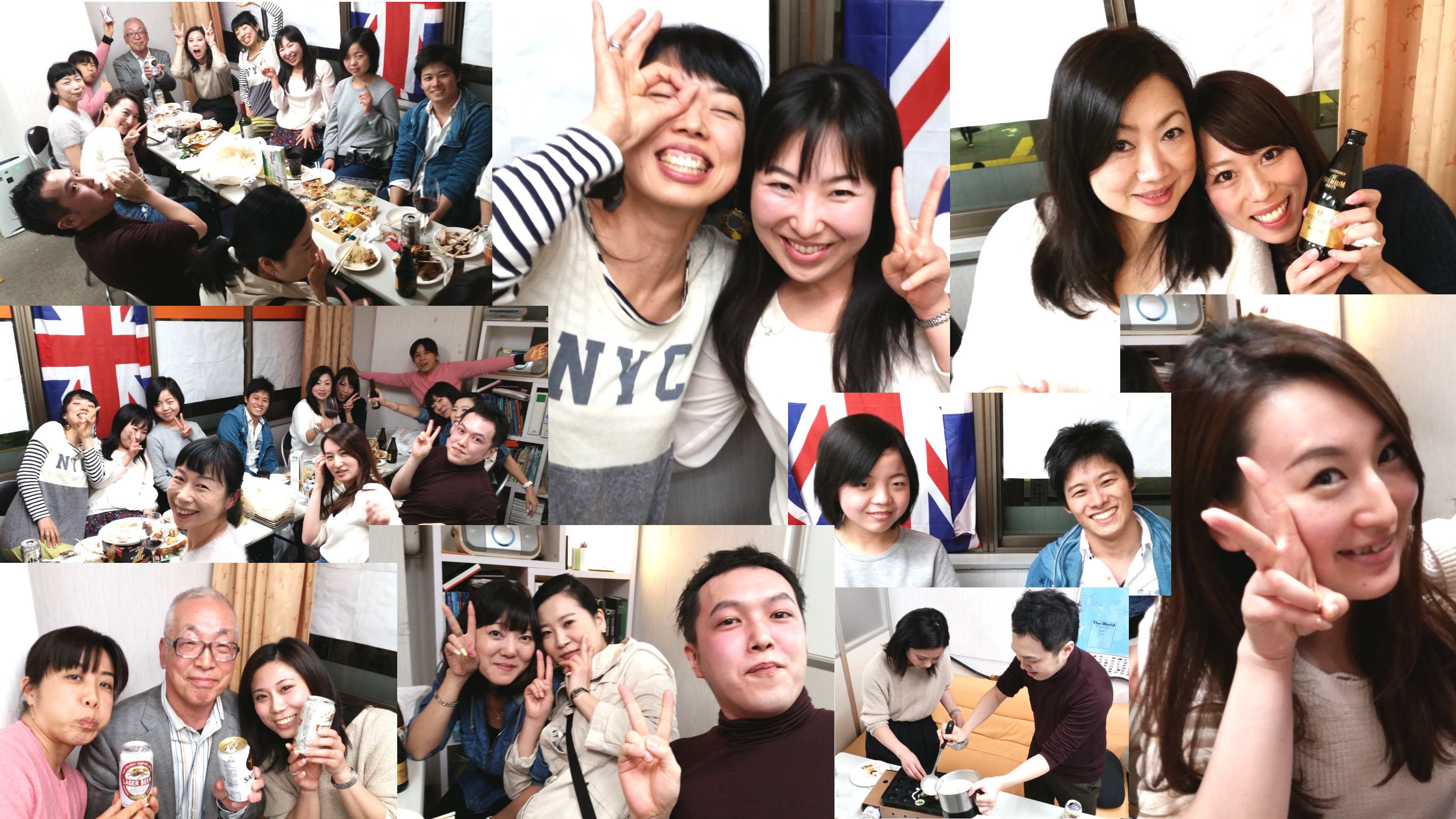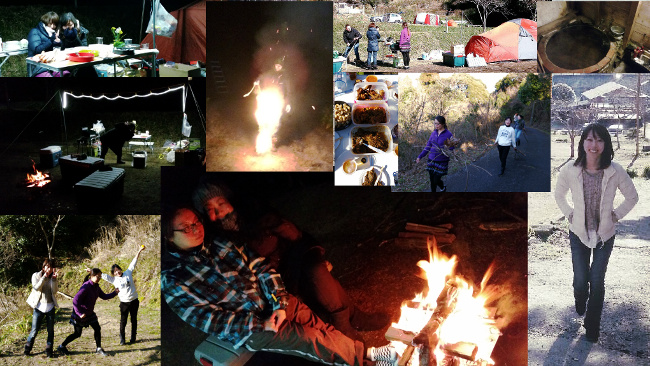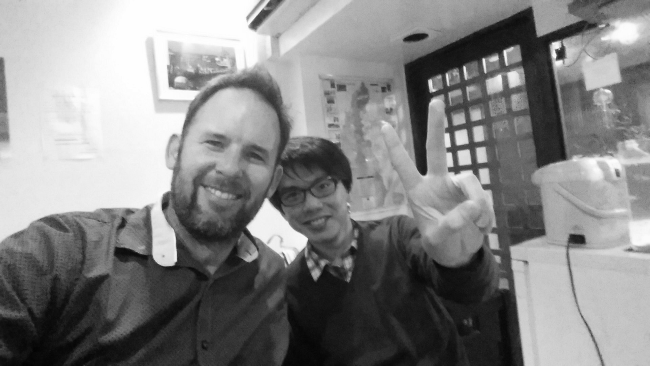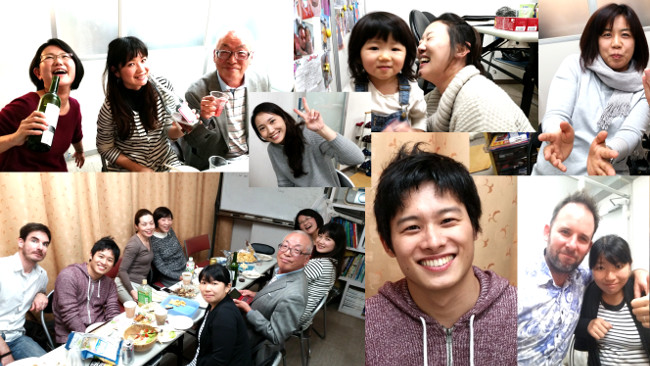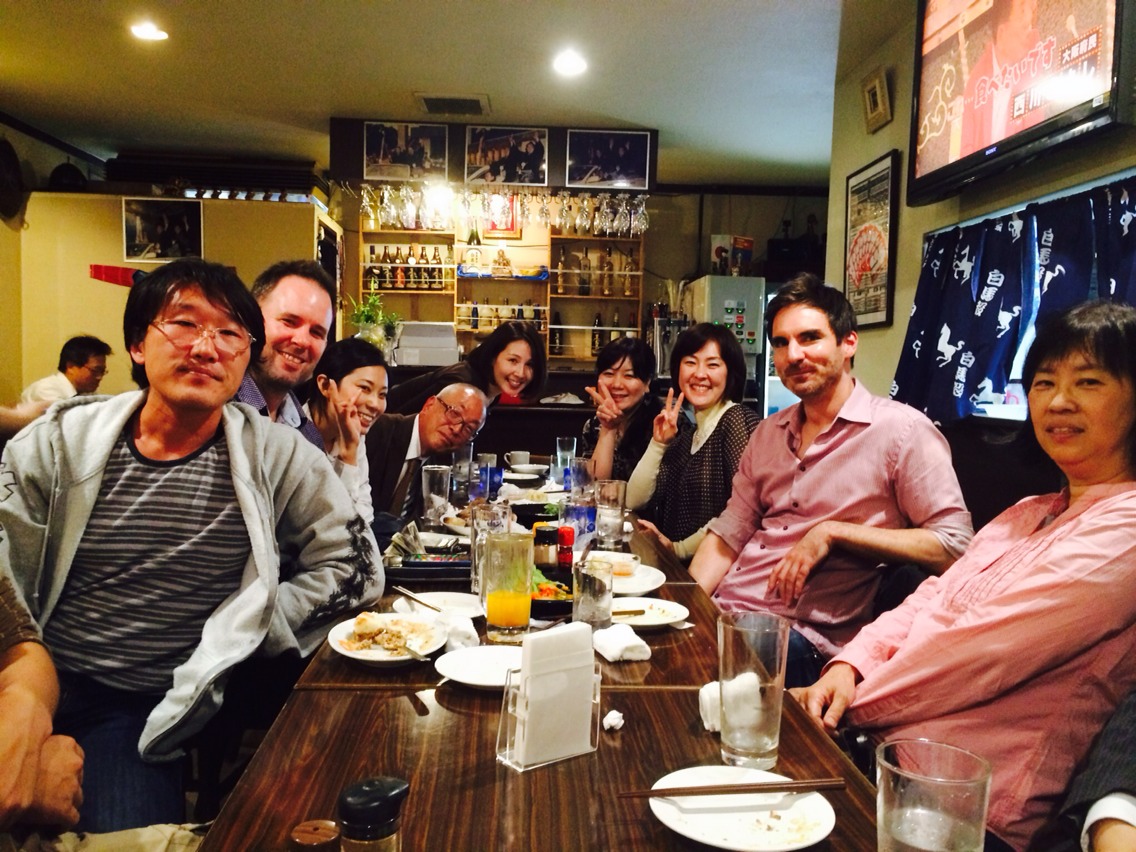Thanks so much everybody!!! I had such a fun time at the school party. But I drank too much beer and テキーラ梅酒 (>.<) Hahahaha!!
And thanks to Big-Ken and Kumiko for making tako-yaki. It was the first time for me to try home-made tako-yaki. Delicous!!!!
英語
I’m fine thank you. And you?
日本人に「How are you?」を聞くと、答えがほとんど「I’m fine thank you. And you?」。 ネーティブの中、これは有名な話ですよ。私のイメージは、日本人が目から血が出ていても、かならず「I’m fine thank you. And you?」と言います。 (>.<)
「How are you?」と聞かれたら、別の表現を使ったら?または、本当の気分を言った?
例えば、
Q: How are you feeling?
A: Not so good. あまり良くない。
or Great! すごくいい!
or I’m a little hungry. ちょっとお腹が空いてる。
or I’ve got a headache today. 頭が痛いです。
or I’m sleepy. 眠い。
英語で同じ表現を何回も使う事は本当はそう思ってないと言う意味です。だから、普通な気分を述べるために、別な言葉を習った方が良いと思います。たとえば、「delicious」の代わりに、他のどんな表現と単語が使えますか?
英語パーティー
Great Party in November
FAN-TAS-TIC party!! Lots of people, lots of food, lots of beer, and lots of fun!!!
ありがとう!!!
英語
FREEの使い方
Here’s a little tutorial about 2 ways to use “free”.
In the upper picture, we can see “動詞free” or “free名詞” or “動詞free名詞”. Basically we’re talking “free” as in “no money required.” So now we can make some examples.
- Free beer!!
- Girls drink free.
- I got a free ticket.
In the lower photo, we are talking about “無し”, and only in the pattern of “名詞free”. For example:
- Calorie free.
- Alcohol free drinks.
- I want a stress free life.
“Free” does have a couple of other usages, but I’ll leave that for another day. 頑張って!!
イベント
Easyeigo Hiking!!!!
今月はハイキングしました!!12人生徒とブライス先生は御岳山から奥多摩まで、6時間頑張りました。奥多摩で露天風呂に入ってから、美味しいビールを飲みました!楽しかった!
Thank you everyone. It was a lot of fun!!!
英語
I am Bryce / This is Bryce
最近、メール英語と電話英語を教えてます。それで、日本人がよく間違う所を見つけました。
生徒からのメールは、だいたい下の文書から始まります。
Hello Bryce. I am Tomoko.
この場合は「I am Tomoko」で始まるのは可笑しいですよ。「I am 名前」はだいたい初めての挨拶の時に使います。その代わりに、「This is 名前.」または「It’s 名前.」を使った方がいいです。
もう知ってる人にはこのように挨拶します. メールと電話で両方とも同じです。
例えば、電話で、
*** ring ring ***
Bryce: Hello?
Tomoko: Hi Bryce. It’s Tomoko. How are you?
Bryce: Oh. Hi Tomoko. I’m great, thanks.
あと、メールで、
Hi Bryce. This is Tomoko. Can I change lessons this week? I have to go to the dentist tomorrow.
OKですか? もし質問があったら、聞いてね!
